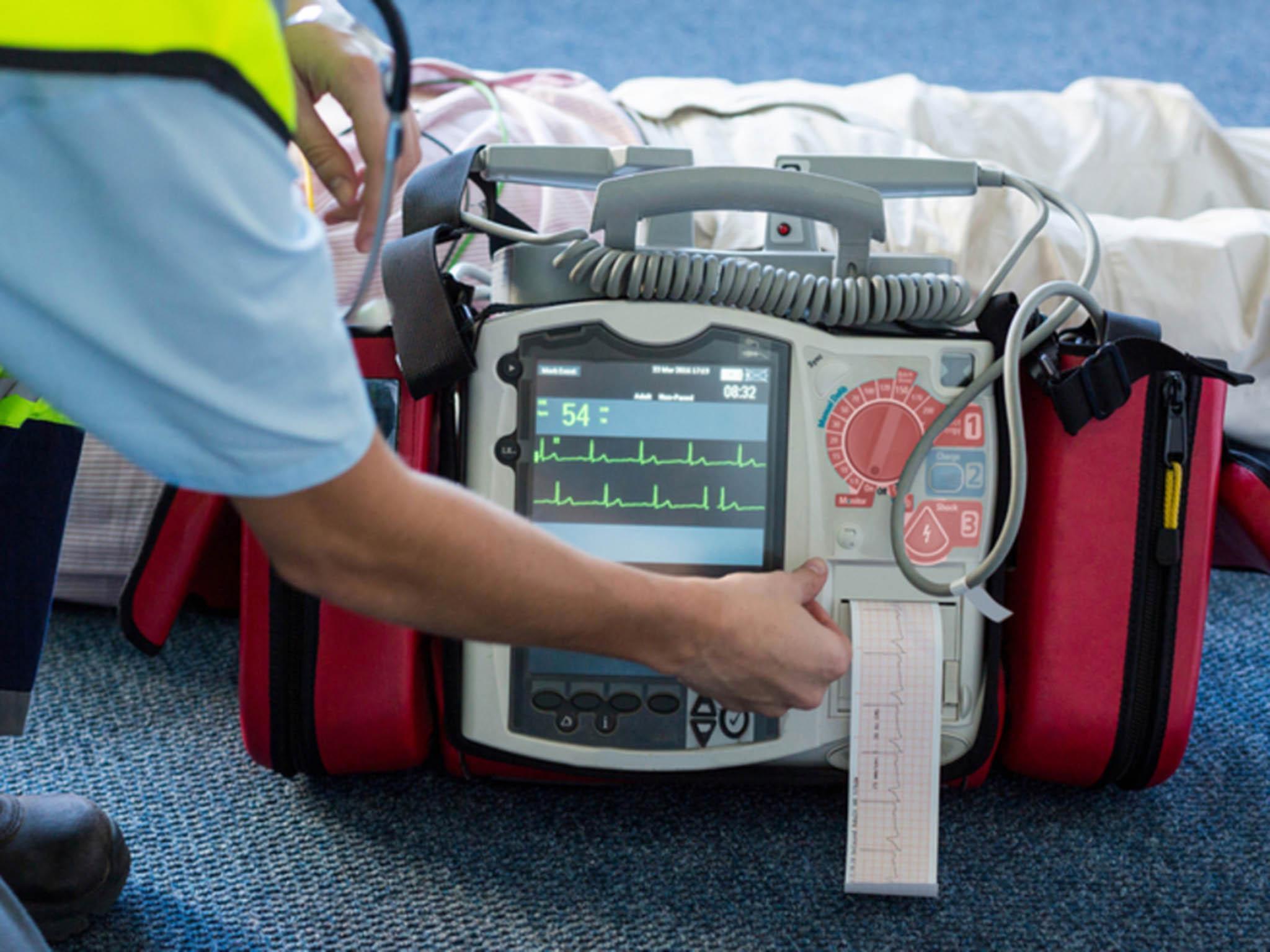Artificial intelligence could ‘transform’ heart attack diagnosis, scientists say
Doctors could use algorithm to diagnose heart attacks with better speed and accuracy than ever before

Your support helps us to tell the story
From reproductive rights to climate change to Big Tech, The Independent is on the ground when the story is developing. Whether it's investigating the financials of Elon Musk's pro-Trump PAC or producing our latest documentary, 'The A Word', which shines a light on the American women fighting for reproductive rights, we know how important it is to parse out the facts from the messaging.
At such a critical moment in US history, we need reporters on the ground. Your donation allows us to keep sending journalists to speak to both sides of the story.
The Independent is trusted by Americans across the entire political spectrum. And unlike many other quality news outlets, we choose not to lock Americans out of our reporting and analysis with paywalls. We believe quality journalism should be available to everyone, paid for by those who can afford it.
Your support makes all the difference.Artificial intelligence (AI) could be “transformational” in improving heart attack diagnosis to reduce pressure on emergency departments, a new study suggests.
Doctors could soon use an algorithm developed using AI to diagnose heart attacks with better speed and accuracy than ever before, the research from the University of Edinburgh indicates.
It could also help tackle dangerous inequalities in diagnosing the condition, scientists suggest.
Researchers found that, compared to current testing methods, the algorithm called CoDE-ACS was able to rule out a heart attack in more than double the number of patients, with an accuracy of 99.6%.
Experts say the ability to rule out a heart attack faster than ever before could greatly reduce hospital admissions.
Nicholas Mills, British Heart Foundation (BHF) professor of cardiology at the Centre for Cardiovascular Science, University of Edinburgh, who led the research, said: “For patients with acute chest pain due to a heart attack, early diagnosis and treatment saves lives.
“Unfortunately, many conditions cause these common symptoms, and the diagnosis is not always straight forward.
“Harnessing data and artificial intelligence to support clinical decisions has enormous potential to improve care for patients and efficiency in our busy emergency departments.”
Clinical trials are now under way in Scotland to assess whether the tool can help doctors reduce pressure on overcrowded emergency departments.
As well as quickly ruling out heart attacks in patients, CoDE-ACS could also help doctors identify those whose abnormal troponin (protein released into the bloodstream during a heart attack) levels were due to a heart attack rather than another condition.
The study found that the AI tool performed well regardless of age, sex or pre-existing health conditions.
According to the researchers, this shows its potential for reducing misdiagnosis and inequalities across the population.
The algorithm has the potential to make emergency care more efficient and effective, by rapidly identifying patients that are safe to go home, and by highlighting to doctors all those that need to stay in hospital for further tests, the findings suggest.
Professor Sir Nilesh Samani, medical director of the BHF, said: “Chest pain is one of the most common reasons that people present to emergency departments.
“Every day, doctors around the world face the challenge of separating patients whose pain is due to a heart attack from those whose pain is due to something less serious.
“CoDE-ACS, developed using cutting-edge data science and AI, has the potential to rule in or rule out a heart attack more accurately than current approaches.
“It could be transformational for emergency departments, shortening the time needed to make a diagnosis, and much better for patients.”
The current gold standard for diagnosing a heart attack is measuring levels of the protein troponin in the blood.
However, because the same threshold is used for every patient, factors such as age, sex and other health problems which affect troponin levels are not considered.
This can affect how accurate heart attack diagnoses are, potentially leading to inequalities in diagnosis.
For example, previous BHF-funded research has shown that women are 50% more likely to get a wrong initial diagnosis.
While data suggests people who are initially misdiagnosed have a 70% higher risk of dying after 30 days.
Researchers say the new algorithm is an opportunity to prevent this.
CoDE-ACS was developed using data from 10,038 patients in Scotland who had arrived at hospital with a suspected heart attack.
It uses routinely collected patient information, such as age, sex, ECG findings and medical history, as well as troponin levels, to predict the probability that an individual has had a heart attack.
The result is a probability score from 0 to 100 for each patient.
The research, published in the Nature Medicine journal, was funded by the British Heart Foundation and the National Institute for Health and Care Research.
Join our commenting forum
Join thought-provoking conversations, follow other Independent readers and see their replies
Comments